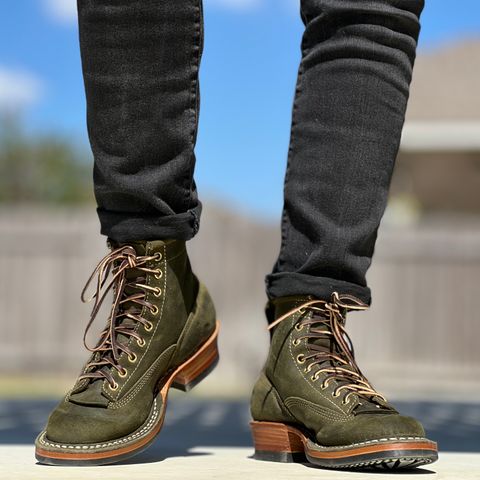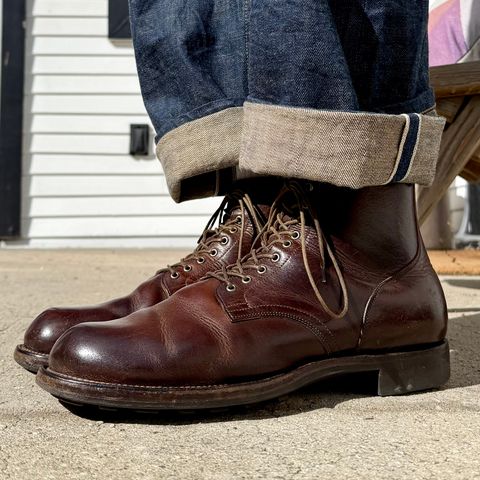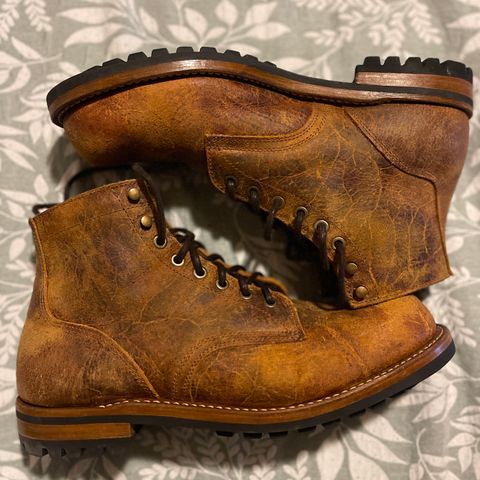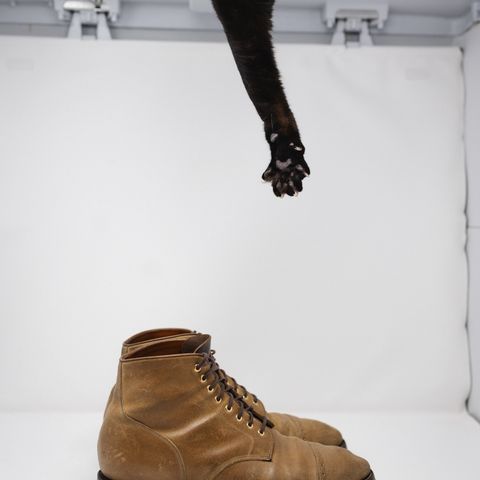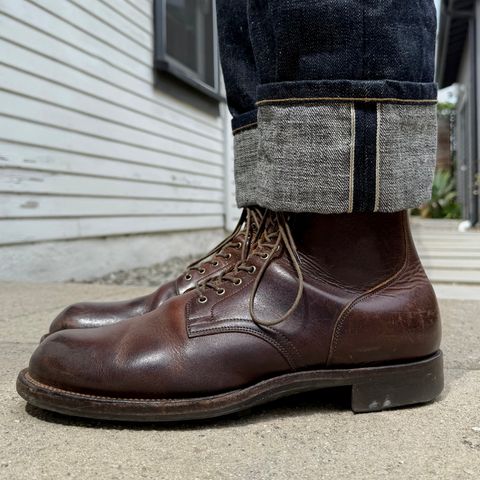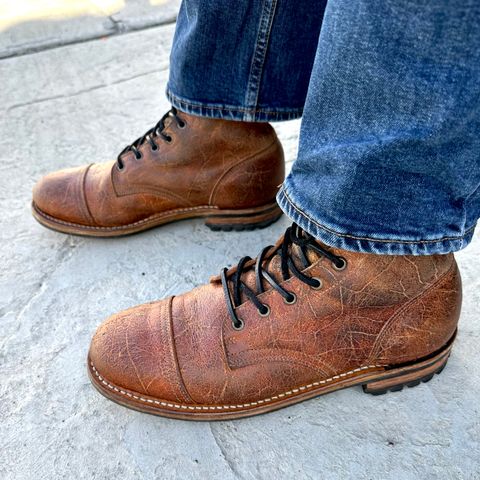Charles F. Stead
TanneryAbout
Charles F. Stead is an English leather tannery founded in 1904, specializing in suede and specialty leathers for footwear and accessories. Based at Sheepscar Tannery in Leeds, the company has focused on premium suede production for over 65 years and supplies leather to heritage footwear brands including Clarks, Dr. Martens, Timberland, and Tricker's.
About
Charles F. Stead is an English leather tannery founded in 1904, specializing in suede and specialty leathers for footwear and accessories. Based at Sheepscar Tannery in Leeds, the company has focused on premium suede production for over 65 years and supplies leather to heritage footwear brands including Clarks, Dr. Martens, Timberland, and Tricker's.
The tannery was founded by Charles Frederick Stead, who learned his trade as an apprentice at Thomas Wright & Co. Ltd. in the 1890s before establishing his own business. The company took over the historic Sheepscar Tannery, originally founded in 1823, and incorporated on April 9, 1904. Today, the tannery employs 75 people and generated €14 million in revenue in 2023, with main markets in Europe, the United States, and Japan.
C.F. Stead is known for producing kudu leather from African antelope, as well as various suede and grain leather types. The company has been certified by the Leather Working Group since 2007 and received the Queens Award for Export Achievement for its international presence.
History
Charles F. Stead apprenticed at Thomas Wright & Co. Ltd. during the 1890s before starting his own business on St. Anne's Street near Leeds city center. He acquired Sheepscar Tannery in the Meanwood valley, an area historically known for its concentration of tanneries that utilized the waters of Meanwood Beck. The company was incorporated on April 9, 1904 as Charles F. Stead & Company, Limited, company number 00080604.
The tannery initially produced leathers from domestic sheepskin for book-bindings, chamois, and fancy leather goods. Between 1910 and 1920, the company installed a new steam engine to support chrome tanning processes and introduced an electric generator for machinery and lighting. During this period, Charles F. Stead died in a car crash, and his son Phillip K. Stead took over the business at age 22. Under Phillip's leadership, the company began focusing on deerskin and buckskin tanning.
During the 1920s, British interest in suede shoes grew after being popularized by the Duke of Windsor. C.F. Stead adapted to this trend and transitioned to modern suede production. During World War II, the tannery supplied sheepskin garments to the Royal Air Force. After the war, Ernest Crack became Managing Director and restructured the business, expanding into the credit card wallet and leather goods market.
Between 1950 and 1990, the company acquired an additional tannery in Strensall, York, and began international market expansion. The tannery created seasonal color pattern books for suedes and supplied leather to Dr. Martens. This period marked C.F. Stead's transition from general leather goods to specialized suede production. The company established a long-term partnership with Clarks that began in the 1950s and continues today.
Since 1990, C.F. Stead has focused on high-quality suede for footwear and bag manufacturers, working with sustainable antelope skins. The company maintains its status as a private limited company and remains active with headquarters at Sheepscar Tannery, Sheepscar, Leeds, LS7 2BY.
Manufacturing process
C.F. Stead employs a 28-day manufacturing process with 15 production stages to create suede. Hides arrive primarily from cattle-rearing countries including Argentina and New Zealand, pre-treated with either a mineral chrome tanning process or a plant-based tanning process.
The tannery uses chrome tanning equipment installed in the early 1900s, utilizing fully loaded large wooden drums turned by steam power. A distinctive re-tannage process reduces the fat content in hides, resulting in more densely packed leather fibers. This process creates suede that loses 15 to 30 percent of its initial surface during production.
After tanning and dyeing, leather is dried and flattened using a machine that functions like an iron on a conveyor belt. The leather is then stretched and passed through a large drier to complete the finishing process.
Products
C.F. Stead produces leathers designed for Goodyear-welted shoes, Western boots, golf shoes, and accessories, emphasizing durability and traditional manufacturing methods. The company categorizes its products into several distinct lines.
Classic suedes include Janus Butt Reverse Suede, Janus Calf Reverse Suede, Repello Calf Suede, Eco Buck Lillywhite, Waxy Commander Original, Bronto Suede, Repello Gum Oil, and Rough Out Gum Oil. These suedes feature various finishes and textures suited to different footwear applications.
The tannery's flesh-out leather collection includes Rambler, Crazy Cow, Desert Oasis Suede, and Waxy Mohawk. These leathers are finished on the flesh side rather than the grain side, creating distinct visual and textural characteristics.
Grain leathers produced by C.F. Stead include Regency Calf and Buckingham Full Grain, finished on the natural grain side of the hide for a smooth, polished appearance.
The company specializes in leathers from antelope, elk, and deer, including multiple kudu variations. Waxed Kudu features full wax impregnation with natural grain blemishes visible, intended for use on the grain side. Kudu Classic offers a gloss finish with pronounced grain, suitable for formal applications. Additional specialty leathers include Unicorn Elk, Doeskin, and Kudu Jamaica.
C.F. Stead supplies leather to premium fashion and footwear brands including Timberland, Clarks, Tod's, Lacoste, John Lobb, Burberry, Dr. Martens, Tricker's, White's Boots, Oak Street Bootmakers, and Lanx Shoes. The tannery has maintained its partnership with Clarks since the 1950s, supplying suede for various boot models including the Desert Boot.
Environmental initiatives
C.F. Stead completed its first Leather Working Group audit in 2007, initially approaching the certification with caution. The company found that LWG certification created a clearer roadmap for continuous improvement and demonstrated sustainability commitment to customers. Clarks, a primary customer since the 1950s, encouraged the tannery's LWG engagement.
In 2015 and 2016, C.F. Stead invested £1.4 million in a new automated dyehouse designed to control processing more precisely. This installation achieved significant reductions in water and energy use. The company maintains LWG certification and continues to focus on environmentally conscious production methods, reducing water consumption year after year.
References
"Suede and Leather". Charles F Stead and Co Ltd. Retrieved September 30, 2025.
"Heritage". Charles F Stead and Co Ltd. Retrieved September 30, 2025.
"CHARLES F.STEAD & COMPANY,LIMITED". Companies House. Retrieved September 30, 2025.
"A visit to the C.F. Stead tannery in the UK". FashionNetwork. Retrieved September 30, 2025.
"C.F. Stead Leather". The Tannery Row. Retrieved September 30, 2025.
"Learn about Charles F Stead & Co's journey to certification with Leather Working Group". Leather Working Group. Retrieved September 30, 2025.
